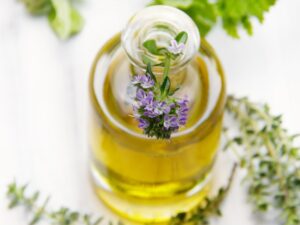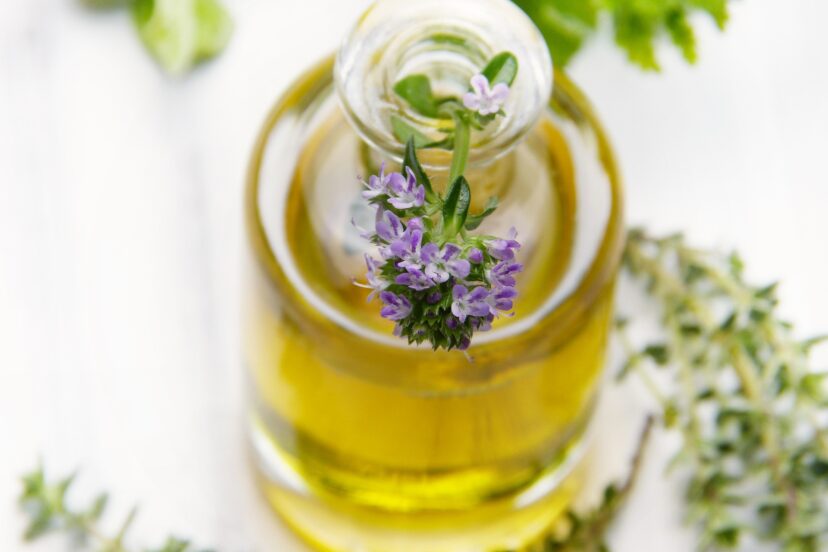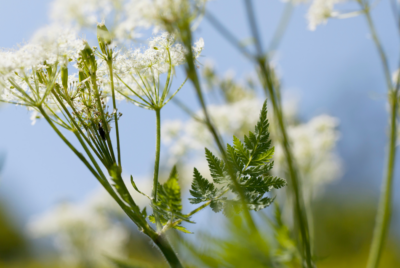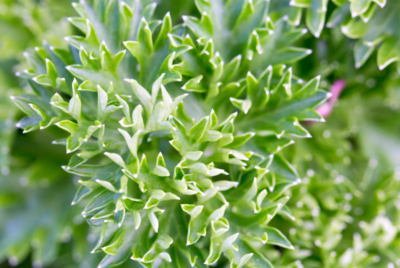Thymes
Thymes
1. Introduction to Thymes
Thymes, an herb steeped in history and brimming with health benefits, have always held a special place in my heart. As an enthusiast and advisor on natural remedies, my journey into the world of thymes has been nothing short of a revelation. This remarkable plant, often relegated to the realms of culinary use, possesses healing properties that reach far beyond the confines of the kitchen. The versatility of thymes, with their distinctive aroma and robust flavor, is matched only by their wide range of medicinal benefits. From ancient civilizations to modern herbal medicine, thymes have been celebrated for their ability to treat a myriad of health issues.
The Herbs Journey
The herb’s journey through history is as rich as its flavor; it was used by the Egyptians for embalming, by the Greeks as a source of courage, and throughout the Middle Ages, it was believed to ward off nightmares and promote fearless sleep. This historical reverence speaks volumes about the esteem thymes have commanded through the ages. But what truly fascinates me is how current scientific research continues to uncover the depth of thymes’ healing capabilities. Their natural antiseptic and antibacterial properties make them an excellent choice for fighting infections, while their rich antioxidant content helps to fend off disease and promote overall wellness.
Thymes Incredibly user-friendly
Moreover, thymes are incredibly user-friendly. They can be grown in a garden or a windowsill, making them accessible to anyone interested in tapping into their healing power. Whether used fresh or dried, in cooking or as a tea, thymes offer a natural, potent solution to many of today’s health concerns, from respiratory issues to skin conditions. Their adaptability in various forms – be it oils, tonics, or lotions – allows for a personalized approach to natural healing.
Exploring Thymes
In exploring thymes, I’ve learned that this herb is not just a kitchen staple but a powerful ally in our health and wellness toolkit. Its ability to soothe a sore throat, boost the immune system, and even improve mood highlights the multifaceted benefits thymes bring to the table. This exploration into the world of thymes has not only deepened my appreciation for the plant but has also reinforced my belief in the power of natural remedies to support and enhance our health.
2. Healing Properties of Thymes
2.1. Immune System Support
The ability of thymes to bolster the immune system is nothing short of remarkable. This herb is rich in vitamin C, a crucial nutrient for immune defense, and it also contains significant amounts of vitamin A, which is not only beneficial for the immune system but for eye health as well. Thymes are packed with copper, fiber, iron, and manganese, offering a wide array of minerals that support the body’s natural defenses. Regular inclusion of thymes in your diet or wellness routine can act as a fortification, especially during the colder months when colds and flu are more prevalent. The antioxidants present in thymes help neutralize free radicals in the body, reducing oxidative stress and bolstering the immune system. Incorporating thymes into teas or using them in cooking can provide a delicious way to enhance your body’s ability to fend off illnesses.
2.2. Respiratory Health
Thymes have been traditionally used for treating respiratory conditions, and for good reason. This herb contains compounds that have expectorant and bronchial antispasmodic properties, making it extremely effective for coughs, bronchitis, and chest congestion. Thymol, one of thyme’s active ingredients, is a powerful antiseptic that can help to alleviate coughs by calming the muscles involved in coughing fits and aiding in the expulsion of mucus. Drinking thyme tea or inhaling thyme-infused steam can soothe the respiratory system, provide relief from coughing, and promote relaxation of the airways. This makes thymes an invaluable herb during the cold and flu season or for anyone suffering from chronic respiratory conditions.
3. Medicinal Qualities of Thymes
3.1. Antifungal and Antibacterial Benefits of Thymes
Thymes’ antifungal and antibacterial properties make it a powerful ally in combating infections. The essential oil extracted from thymes, particularly thymol, has been extensively studied for its ability to inhibit the growth of bacteria and fungi. This makes thyme oil an excellent natural disinfectant for wounds and a potent remedy for fungal infections like athlete’s foot. Its antibacterial properties are also beneficial in oral health; thyme-based mouthwashes can help fight bacteria that cause bad breath and dental decay. Incorporating thyme into your daily routine, either through topical application of the oil or consumption in teas and dishes, can provide a natural layer of protection against microbial infections.
3.2 Antioxidant Properties of Thymes
The antioxidant properties of thymes are a cornerstone of their medicinal benefits. These antioxidants, including flavonoids and phenolic acids like rosmarinic acid, protect the body’s cells from damage caused by free radicals. This oxidative stress is linked to aging and various chronic diseases, such as heart disease and cancer. By neutralizing these harmful free radicals, thymes help to reduce inflammation and the risk of chronic health conditions. Regular consumption of thymes can also improve skin health, thanks to its antioxidant content, leading to a reduction in signs of aging and a healthy, radiant complexion.
4. Harvesting Thymes

4.1. Best Practices for Harvesting
Harvesting thymes at the right time ensures you get the most out of their medicinal and culinary qualities. The ideal time to harvest thymes is in the morning, just after the dew has evaporated but before the sun becomes too intense. This is when the essential oils are most concentrated, offering the best flavor and therapeutic value. To harvest, simply cut the top five to six inches of growth, preferably before the plant flowers for the highest potency. Ensure you leave enough of the plant so it can continue to grow.
4.2. Storing Thymes for Longevity
Once harvested, preserving the freshness and potency of thymes is crucial for maximizing their healing properties. For long-term storage, drying thymes is the most effective method. Tie the stems together and hang them upside down in a warm, airy spot away from direct sunlight. Once completely dry, strip the leaves from the stems and store them in an airtight container in a cool, dark place. This method preserves their aromatic and medicinal qualities, ensuring you have access to the healing power of thymes year-round.
5. Using Thymes in Oils
5.1. Preparation of Thyme Oil

The preparation of thyme oil is a simple process that unlocks the myriad of benefits this herb has to offer, especially for topical applications. To make your own thyme oil, you’ll need a carrier oil (like olive or coconut oil) and fresh or dried thyme. By infusing the thyme in the oil over low heat for several hours, you allow the essential oils and beneficial compounds of the thyme to meld with the carrier oil. This concoction can then be used for a variety of purposes, including massage oils to relieve muscle pain, as a scalp treatment to promote hair growth and reduce dandruff, or even as a natural antiseptic for cuts and bruises. The antibacterial and anti-inflammatory properties of thyme, combined with the soothing qualities of the carrier oil, make thyme oil a versatile and powerful addition to your natural health toolkit.
5.2. Applications and Benefits
Thyme oil’s applications are extensive, leveraging its antibacterial, antifungal, and anti-inflammatory properties for various health benefits. When applied topically, thyme oil can significantly improve skin conditions, such as acne, by reducing bacteria and inflammation. Additionally, it can be used to soothe and heal minor wounds, cuts, and scrapes, thanks to its antiseptic properties. For those experiencing joint pain or arthritis, massaging thyme oil into the affected area can provide relief by reducing inflammation and pain. Moreover, incorporating thyme oil into your daily routine can enhance your overall well-being, from improving your respiratory health when used in aromatherapy to strengthening your immune system through topical absorption.
6. Incorporating Thymes into Tonics
6.1. Crafting Healing Tonics with Thymes
Crafting tonics are a traditional way to ingest this herb for its medicinal benefits, particularly for digestive and respiratory health. Creating a thyme tonic or tea involves steeping fresh or dried thyme in boiling water, allowing its therapeutic compounds to infuse into the liquid. This simple yet potent beverage can aid in digestion, relieve sore throats, reduce coughing, and act as an overall immune booster. Thyme’s natural antibacterial properties also make the tonic an effective remedy for oral health issues, such as gum infections and bad breath. Regular consumption of thyme tonic can be a comforting and effective way to incorporate the healing properties of thymes into your daily health regimen.
6.2. Dosage and Usage Tips
While thyme tonics offer numerous health benefits, it’s important to consume them in moderation to avoid potential side effects, such as digestive upset in sensitive individuals. Starting with a small amount, such as one cup a day, and observing how your body reacts is a prudent approach. For most people, thyme tonic can be safely enjoyed daily as part of a balanced diet. However, if you’re pregnant, breastfeeding, or have specific health conditions, it’s advisable to consult with a healthcare professional before incorporating thyme tonics into your routine.
7. Thymes in Lotions
7.1. Making Thyme-Infused Lotions
Incorporating thymes into lotions offers a soothing and healing remedy for the skin. To create a thyme-infused lotion, start by infusing dried thyme in a carrier oil, as described in the thyme oil preparation section. This infused oil can then be mixed with natural lotion bases or butters, such as shea butter or cocoa butter, to create a moisturizing and therapeutic skin care product. Thyme’s antibacterial and anti-inflammatory properties make these lotions particularly beneficial for treating skin conditions like eczema, acne, and psoriasis. Regular use of thyme-infused lotions can improve skin health, reduce inflammation, and provide a natural barrier against skin infections.
7.2. Skin Health and Application
The application of thyme-infused lotions can transform your skin care routine by introducing natural, healing elements that support skin health. Suitable for daily use, these lotions can be applied to the face and body to harness thyme’s antioxidant properties, which protect the skin from environmental stressors and reduce signs of aging. For individuals with sensitive skin, a patch test is recommended to ensure compatibility. Embracing thyme-infused lotions is not only a step towards healthier skin but also a move towards more sustainable and natural beauty practices.
8. Thymes for Digestive Health
8.1. Benefits for the Digestive System
Thymes have long been recognized for their positive impact on the digestive system. This herb stimulates digestion, relieves gas, and reduces bloating, making it an excellent natural remedy for digestive discomfort. The active compound in thymes, thymol, has carminative properties. This means it helps in the expulsion of gas from the stomach and intestines. By doing this it is alleviating discomfort and promoting a healthy digestive process. Moreover, thymes have antispasmodic qualities that can soothe the smooth muscles of the stomach. This action reduces
cramps and discomfort. Incorporating thymes into meals not only enhances flavor but also aids in digestion, making it easier for the body to absorb nutrients from food.
8.2. Recipes for Digestive Support
Creating recipes that include thymes for digestive support is both easy and beneficial. One simple way to harness thymes’ digestive benefits is by making a digestive tea. Steep fresh or dried thyme leaves in hot water for about 10 minutes, strain, and enjoy after meals to aid digestion. Another option is to incorporate fresh thymes into salads or as a seasoning for meats and vegetables. The herb’s aromatic flavor not only enriches the dish but also contributes to smoother digestion. For those looking to soothe digestive issues, incorporating thymes into daily meals can be a flavorful and effective approach.
9. Mental Health and Thymes
9.1 Stress Relief and Anxiety Reduction
The calming properties of thymes extend beyond physical health, offering significant benefits for mental well-being as well. Thymes contain compounds that have a relaxing effect on the body, which can be particularly beneficial for those dealing with stress and anxiety. The scent of thyme has been shown to positively affect mood and reduce feelings of anxiety when used in aromatherapy. Creating a calming environment by diffusing thyme oil or burning a thyme-scented candle can help to alleviate stress and promote a sense of calm and relaxation.
9.2. Sleep Improvement Techniques
Thymes can also play a role in improving sleep quality. The herb’s relaxing properties can help prepare the body for sleep. This makes it easier to fall asleep and stay asleep through the night. A bedtime ritual of drinking thyme tea can signal to your body that it’s time to wind down and rest. By doing this you are promoting a more restful night’s sleep. Incorporating thyme oil into a bedtime bath or applying it to the temples and wrists can enhance the calming effect. These rituals can support a good night’s sleep.
10. Conclusion and Final Thoughts
Exploring the wide array of health benefits offered by thymes has been a journey through ancient wisdom and modern science. Thymes boost the immune system and support respiratory health and promote digestive wellness and mental well-being. Thymes emerge as a powerful natural ally. The versatility of thymes shows as it can be used in culinary creations, brewed into tonics, infused into oils and lotions. But thymes can simply be enjoyed for their aromatic qualities. This underscores the herb’s invaluable role in natural health and wellness practices.
Embracing thymes in our daily lives allows us to harness the healing powers of nature. It helps provide a holistic approach to health that nurtures the body, mind, and spirit. We will continue to explore and incorporate natural remedies like thymes into our wellness routines. By doing this we open ourselves up to a world of health benefits that support a balanced and vibrant life.
FAQs
1. How often should I use thyme-based products?
You can use Thyme-based products daily, depending on the form and purpose. For culinary uses, thymes can be incorporated into meals regularly. For medicinal purposes, such as teas or tonics, it’s best to follow specific dosages or consult with a healthcare provider.
2. Can thymes be used for children?
Yes. Thymes can be used for children in moderation and mild forms, such as in cooking or as a mild tea. However, it’s important to use smaller doses. Consult a pediatrician, especially for children under the age of two or for medicinal uses.
3. Are there any side effects to using thymes?
Thymes are generally safe when used in normal culinary quantities. However, in medicinal amounts, some people may experience digestive upset or allergic reactions. It’s important to start with small amounts to see how your body reacts.
4. How can I grow thymes at home?
You can easily grow thymes at home in pots or gardens. They require well-drained soil, plenty of sunlight, and moderate watering. Thymes are hardy herbs that thrive with minimal care, making them perfect for beginner gardeners.
5. What are the best ways to incorporate thyme into my diet?
Thymes can be added fresh or dried to a variety of dishes, including soups, stews, meats, and vegetables. They can also be brewed into teas or infused into oils for salads and cooking. Experimenting with thymes in different recipes is a delightful way to enjoy their health benefits.



